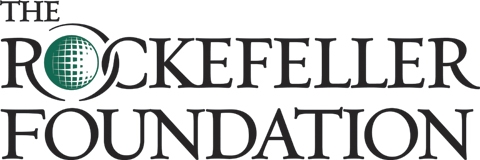
Rockefeller and Pew: States need to strengthen performance measures
 Many states fail to track the results of their transportation dollars, according to a new report by the Pew Center on the States and the Rockefeller Foundation.
Many states fail to track the results of their transportation dollars, according to a new report by the Pew Center on the States and the Rockefeller Foundation.
The report, Measuring Transportation Investments: The Road to Results, is quick to tie the timing of its findings to the current debate over including more performance measures in a reauthorization of the nation’s surface transportation law. An unofficial version of the Obama administration bill makes performance and accountability a key component of the federal program.
The report ranked the 50 states and the District of Columbia according to six key goals: safety, jobs and commerce, mobility, access, environmental stewardship and infrastructure preservation. According to the report:
Just 13 states — California, Connecticut, Florida, Georgia, Maryland, Minnesota, Missouri, Montana, Oregon, Texas, Utah, Virginia and Washington — have goals, performance measures and data to help decision makers prioritize transportation spending. Nineteen states trail behind, lacking a full array of tools needed to account for the return on investment in their roads, highways, bridges and bus and rail systems. The remaining 18 states and Washington, DC, fall someplace in between, with mixed results
Voters are making it known that they want concrete benchmarks and clear results for their tax dollars when it comes to infrastructure. “The American public expects leaders to manage our transportation investment with an eye toward performance and results,” said Nicholas Turner, Rockefeller Foundation managing director, pointing to recent Rockefeller Foundation Infrastructure Survey results showing that 90 percent favor strengthening policies that hold government accountable for collecting data and certifying that projects are delivered on time and on-budget.
At Streetsblog Capitol Hill, Tanya Snyder noted that the state transportation agencies with the most effective means of tracking public dollars often enjoy greater public backing.
The collection of solid data and the ability to use that data to justify the benefit of transportation expenditures helps the public gain confidence in state transportation agencies. In Washington, once the state started scoring projects based on a cost-benefit analysis, the legislature was persuaded to sell bond issues and increase the gas tax to bring in more revenue. Georgia has begun assessing potential projects in terms of their ability to improve mobility and create economic development. Oregon measures the number and rate of crashes in which large trucks were at fault, using this information to increase safety precautions.
Snyder also highlighted the sections of the report touting merit-based grant programs like TIGER, which would be built upon if Congress adopts the administration’s proposed Transportation Leadership Awards.



